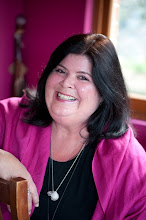Being open is not really hard … it just feels that way sometimes … and being open is simply necessary when you choose to live authentically and boldly as yourself.
So why does it seem so hard to open up, particularly when you feel something uncomfortable?
Because when you open up, not only are you choosing to allow others to see inside you but also to let things out … what you really think and feel, what you really want and desire, beyond your fearful ego-mind’s insidious need to protect and defend by withholding your deeper emotional truth.
Opening up to yourself requires a willingness to reveal to yourself who you really are and what’s really going on at any point in time. It is a process of unwrapping the layers of fearful thinking you have used to protect yourself … usually from feeling something you don’t want to feel. Yet when you open up and let yourself go all the way with your truth, everything changes and you will discover that being open is the pathway to inner peace.
When you choose to open up be prepared to feel things that you have been avoiding or suppressing, be prepared to confront fears and longings that you have been denying and be prepared to discover that what you feared would happen when you open up, usually doesn’t!
In fact, when you open up to yourself and others, others will open up to you. And when there is openness in your communication and relationships, genuine connection and responding occur and you and the other both get outcomes you enjoy.
Choosing to open up is like anything else in the paradigm of I Create The Whole Of My Own Reality … a choice you can make moment by moment because you choose to. And when you choose to open up, you have more choices about how to BE and what to DO so you can HAVE what you truly want.
--------------------------------------------------------------------------------
"Openness doesn't come from resisting our fears
but from getting to know them well."
Pema Chodron





